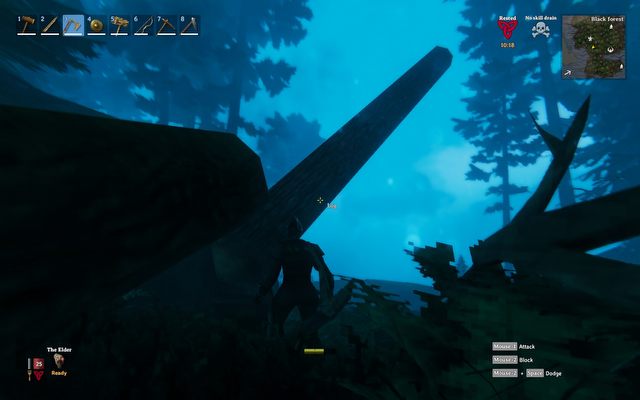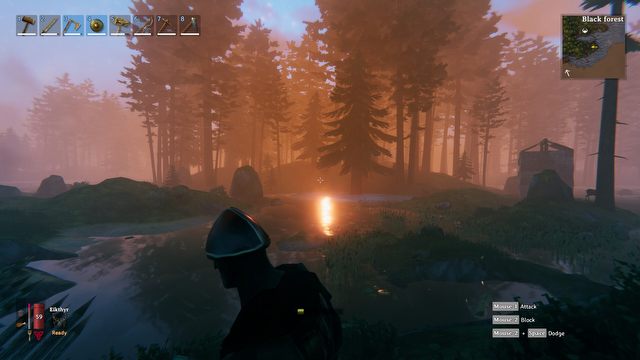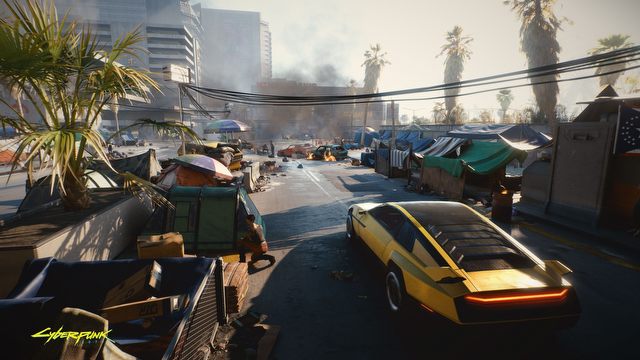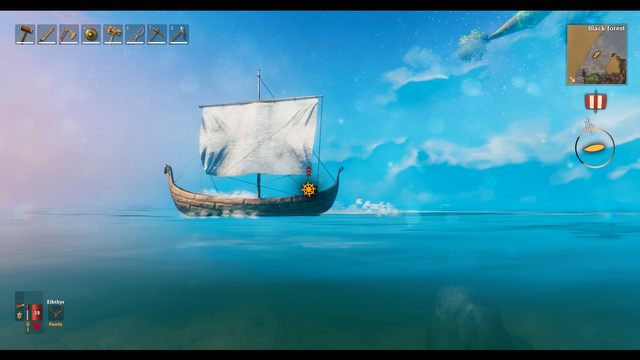Chopping Trees is an Adventure, or Why isn't Valheim Boring?
I don't think I need to convince anyone that Valheim is a sensation. Millions of copies sold, great ratings, and lots of coveragpraising different aspects of the game from graphics to refreshing the survival genre. But I wanted to talk about trees.
The review is based on the PC version.
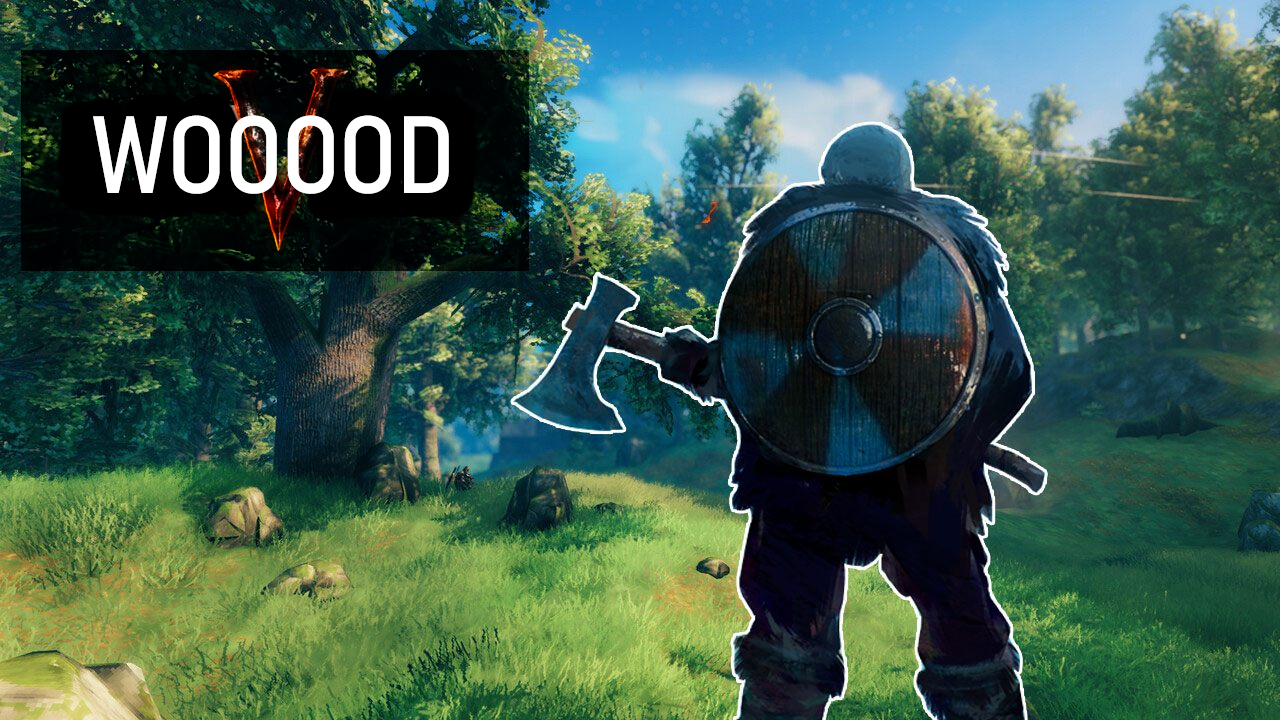
Chopping down trees is a fairly standard procedure in games. In fact, it's so trivial an activity that we often completely ignore it. From Warcraft and Age of Empires, to Minecraft and Rust, deforestation is completely ordinary. We've seen it, we're bored with it, long live polycultural reforestation.
In Valheim, after some 40 hours of play, fetching wood is still exciting.
If you've read any preview of this game, you already know that the first tree you chop down will kill you. The trunk rolls down in a direction that's difficult to predict, and then it also happens to roll over uneven terrain. If it hits your character, you die. Yes, I've had the very same thing happen to me.
By keeping you on your toes, this alone makes felling trees a more compelling activity, one that requires attention. We need to watch the trunk so we don't miss the moment it begins to fall. It's a trifle, it even seems weird to talk about it, yet this is exactly the kind of gamedev solutions we should be talking about.
Remember Gears of War, with its reloading mini-game? If we pressed the reload button at the very right moment, the action was completed faster, and in this dynamic shooter, every split-second mattered. It turned a completely mindless activity that added nothing to gameplay, into a minute struggle that could be as rewarding as punishing.
Lumberjack advance
Just the fact that trees are falling down is no small deal at all. However, the list of attractions doesn't end there. If we're lucky, the falling trunks may knock over other trees, saving us lots of work. We can also choose a place for felling trees so that they fall down a slope, closer to the point from which we will pick them up and take to the base – logistics unlocked. Especially if we fix a path with a hoe beforehand.
This is another, mighty important thing. Wood weighs. You can’t just carry tons of trees on your bare arms. I went to the dungeon and somehow ended up with all these sticks. No sir. You need to launch a full-on lumberjack expedition, almost like in Mud-Runner, preferably with said cart. If you want to build a new hut, or expand the walls, you'll need to figure out not only resources, but also logistics and transportation.
And it doesn't end there. Not every tree is the same. Birch and pine can't be cut down with a stone axe – you need metal tools. For that, ordinary beech trees will provide only ordinary wood, and special varieties require looking for more interesting tree species that only grow on certain types of terrain. And then, not every item can be made with any type of wood. You need to think about what you're going to need before you fetch the wood.
The time of day also seems to matter. I have the impression that noise attracts unfriendly forest dwellers, and there seem to be more of them at night. That's why it's sometimes worth waiting until the morning before we head into the woods with an axe.
Think
I mentioned thinking. Thinking about choosing where to cut trees, what tool to use, whether we should level the ground to drive a cart... Not to mention the possibility of starting a tree farm of sorts. Often, perhaps too often, games have us repeat the same actions mechanically, without thinking, over and over again. Which is the very definition of boredom.
But this game also isn't a lumberjack simulator. Getting enough wood is just one of many activities we need to do, mainly in order to have a bigger, better-equipped homestead, where we can forge more powerful weapons and armors. We'll these to explore increasingly dangerous places in the world, fight monsters, bosses, and discover rarer materials, which can then be used to make even more interesting items and weapons.
With all that the game has to offer, it's easy to forget about chopping down trees. It's just a small, seemingly insignificant part of a much more exciting gameplay loop. However, the creators treated it with so much love and thought; had great ideas and the courage to introduce them. As a result, instead of boring and tedious resource grind, we got a full-fledged gameplay aspect.
Learn
I guess you can see where I'm going with this – namely that games in general would greatly benefit from such an approach.
In so many other games, we encounter activities that are just there for the sake of being there. They yield some benefits, because they must, but they almost reduce the player to a passive agent needed to click the right icons. They can be done with your eyes closed.
In Valheim, a tree can topple over, so we have to stay on our toes. Imagine if in Cyberpunk 2077, when stealing a car on the street, we'd have to pay attention to who it belongs to. If this was the case, stealing a car from a regular corpo-rat would be a much different experience than stealing it from another merc like us, en route to complete a job. Grand theft auto would no longer be reduced to "press F to not have to walk."
Real-time strategy is an extinct genre, but I still love these games dearly. But what if building buildings was a mini-game? If, for instance, selecting the right location for buildings would boost their construction and functioning. This could add a whole new dimension to the otherwise neglectable process of placing a factory on the map.
What if keeping your items nicely sorted in the backpack would shorten the amount of time needed to take them out? Imagine a survival game that promotes keeping first-aid items and a flashlight at the top of the bag, on top of foods and consumables. Or consider the herbs, collected in veritable tons. Maybe every collectible flower should be signed the same way – just "plant" – and the player would have to figure out alone whether it was useful, or perhaps poisonous? Say you get 10 plants right, and you can then skip the process with the plants you've learned.
Once you start playing with the idea, you'll get tons of your own ways of improving seemingly mundane activities in games, turning them into something that might as well be exciting.
Valheim was created by a really small team, and it may have set an interesting new precedent for the entire industry. Because it doesn't end on cutting trees. It's the same story with sailing. Normally, in games like The Witcher or Assassin's Creed, boats work as if they were powered with a diesel engine. Accelerate, slow down, turn left, turn right. Meanwhile, in Valheim, you need to mind the wind direction, and sometimes, you need to perform tacking.
I sincerely hope that other developers are trying to understand how Valheim made so much money, and how to replicate it, and I sure hope they reach the same conclusions. This would make games so much more riveting and real.
